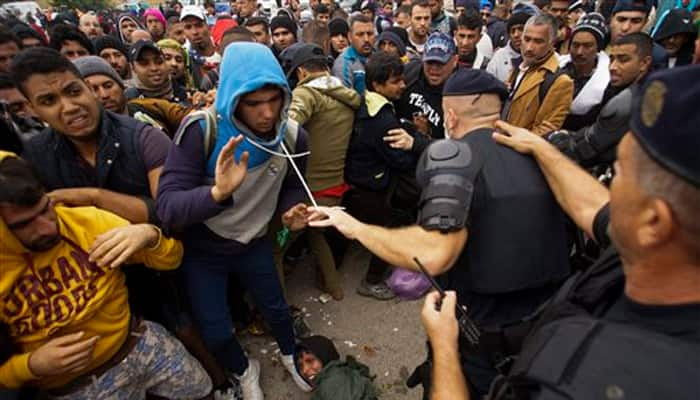Warsaw: Four EU members, namely the Czech Republic, Hungary, Romania and Slovakia, are at the forefront of a growing east-west split in the bloc after they voted against a controversial deal to relocate 120,000 refugees adopted on Tuesday.
In a last moment change of heart, Central European heavyweight Poland backed the quota deal but its policy could change following October`s general election.
Generous EU subsidies played a major role in developing the economies of these ex-communist states after they joined the bloc in 2004. Hundreds of thousands of their citizens also found new jobs and lives in wealthier Western EU neighbour states.
Here are some key reasons why they are now unwilling to accept refugees.
A: A recent study by Poland`s Institute of International Affairs (PISM) found that ethnic and religious homogeneity in these predominantly Roman Catholic eastern EU members triggers a degree of xenophobia and fear of the unknown.
Decades of isolation behind the Iron Curtain as Soviet satellites also reinforce mistrust of foreigners.
The PISM study found that concerns run highest over a presumed "terrorist threat" posed by Muslim migrants to the region, which currently is home to a tiny Muslim minority.
These countries also still see themselves as poor cousins who do not bear the same kind of historical responsibility for the current crisis as EU members with a long colonial past.
"All former communist EU members have difficulties to accept the EU not only as a motor for increasing prosperity but also as a union of solidarity and burden sharing," Austrian political scientist Anton Pelinka told AFP.
A: Warsaw believes it obtained important concessions from the EU, including the assurance that accepting a certain number of refugees did not mean the obligatory quota system had gone into effect and could be applied again in the future without consulting EU members.
Polish Foreign Minister Grzegorz Schetyna on Wednesday said Warsaw had stood in solidarity with Europe to be able to count on it later were the Ukraine conflict to take a turn for the worse and spur a wave of Ukrainian refugees headed for Poland.
Schetyna added he took into account the fact that "voting against (the migrant deal) would have made sense if it could have blocked the decision." That said, the choice had not been easy: a European source said on the eve of the EU vote that "Poland would hate to have to choose between Visegrad solidarity and the European position."Unclear. The latest opinion surveys say the main opposition party Law and Justice (PiS) -- a conservative, eurosceptic outfit led by former premier Jaroslaw Kaczynski -- will win the October 25 parliamentary ballot. It is no secret that PiS rejects Prime Minister Ewa Kopacz`s stance on the migrant crisis.
"The decision of the EU interior ministers is a scandal. It was made at the expense of security and without the agreement of Poles," said Beata Szydlo, tapped to become premier if PiS wins.
















